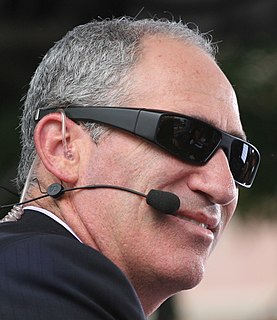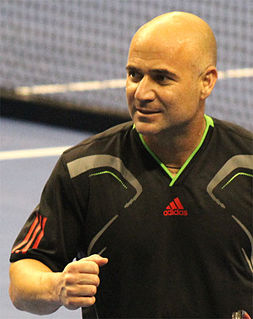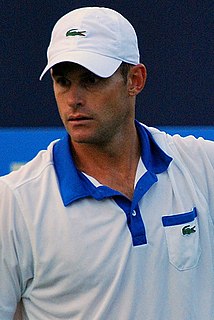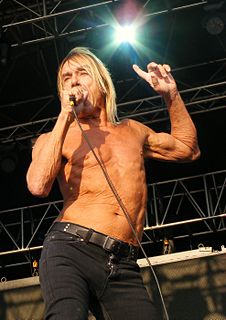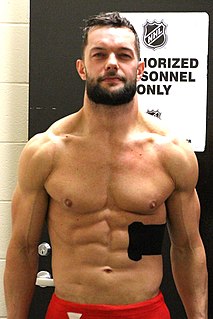A Quote by Brad Gilbert
You see Boris Becker, Mats Wilander, Nadal, Pete Sampras - they were all great when they were young. As a coach, you can see that type of talent at an early age.
Related Quotes
First of all, in any sport where you can measure distance, height speed and all of that, you see how athletes have changed their sport and made it better. I believe, with every generation, the sport has improved. Certainly, in the men's game, that has been the case. I think that I played Pete [Sampras] at his best, I played Roger [Federer] at his best.. I believe wholeheartedly that Roger and [Rafael] Nadal have pushed the game much further than myself or Pete ever did. Their options on the tennis court are considerably more than ours.
Because I know that the early Greeks and Romans and the early Europeans at that age did not see racism as we see it now - because racism was created to justify slavery to build the capital for capitalism - and back in the day they respected talent over race. We had an African Pope in the late 5th century, we had an African Emperor of Rome, and early church Fathers were black.
When I was a kid, a lot of my parents' friends were in the music business. In the late '60s and early '70s - all the way through the '70s, actually - a lot of the bands that were around had kids at a very young age. So they were all working on that concept way early on. And I figured if they can do it, I could do it, too.
I specially want to have young women not to wait as I did until my children were grown, but young women to come in to gain their seniority so they could be respected leaders at a much earlier age. It's important for all women to see young women who share their experience whether it's as a working mom with young children, who understands the struggle and the aspirations of young women in a similar situation. And if they don't have family and they're pursuing their career women should see that as well.
If intelligence were a television set, it would be an early black-and-white model with poor reception, so that much of the picture was gray and the figures on the screen were snowy and indistinct. You could fiddle with the knobs all you wanted, but unless you were careful, what you would see often depended more on what you expected or hoped to see than on what was really there.
Back then I was still listening to rhythm and blues, and my aunt took me to see a Pete Seeger concert. And it gelled. He made all the sense in the world to me. I got addicted to his albums, and then Belafonte and Odetta - they were the people who seemed to fuse things that were important to me into music. I think Pete the most because he did what he did to the point where he took those enormous risks and then paid for them.
